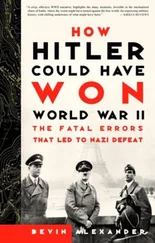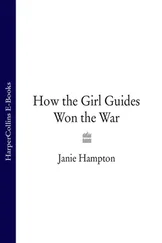Bizarrely, these negotiations were initially masterminded from a Berlin prison. In December 1918 Karl Radek, a Marxist revolutionary, had been sent to Germany at Lenin’s behest to assist the nascent Communist Party led by Rosa Luxemburg in fomenting revolutionary change in a nation seething with discontent. Radek was not discreet. Soon after his arrival the tension between the dominant socialist party and the communists erupted into open warfare on the streets. The Spartacist uprising in January 1919 led to the deaths of at least 160 insurgents and civilians as well as more than thirty casualties among the paramilitaries sent in by the government to crush the rebellion. Luxemburg was captured and summarily executed. Radek was more fortunate: he was arrested and incarcerated in a Berlin jail.
Despite the punitive terms of the Brest-Litovsk treaty (which had been nullified by Germany’s defeat in the war), Berlin’s attitude towards Moscow was guided by a new realpolitik. Since both Germany and the Soviet Union saw themselves as victims of Versailles, a mutually beneficial relationship began to seem highly desirable. To mark this shift, the German authorities moved Radek to distinctly superior surroundings in another part of the Moabit prison, where he was treated like a senior diplomat rather than a dangerous criminal. He was allowed to establish what he described as a ‘political salon’, 9 where leading German industrialists and government officials came to confer with him, including the foreign minister, Rathenau. By the time of his release from prison and his return to Moscow in 1920, his diplomacy had started to bear fruit. fn3 A succession of trade delegations – which notably included Europe’s largest company, the arms manufacturer Friedrich Krupp AG – were soon hustling back and forth between the two countries to restore their lucrative pre-war operations.
In the post-Versailles period, numerous reports of these burgeoning commercial ties surfaced in the European and American press. In the months before Genoa, a flurry of rumours and press reports had started to circulate in Berlin to the effect that a formal agreement between the Soviet Union and Germany was in the offing. Despite this, the idle and incompetent British ambassador in the German capital, Lord D’Abernon, either failed to read the runes or was remarkably insouciant about their import. Either way, he neglected to alert London. As a result, the prime minister was in blissful ignorance of the Soviet–German negotiations until he was told about the Rapallo treaty on that fateful Easter Monday. His dismay at the news was matched by his fury. As a ‘pioneer of personal diplomacy’, 10 he had staked his credibility as an international statesman on a successful outcome to the Genoa Conference. Nor was it ever far from his mind that a new pan-European treaty would do much to restore his own reputation at home, giving much-needed new life to the tarnished glitter of his prime ministerial career. The ‘Welsh wizard’, who was widely held to have ‘won the war’, had every intention of being crowned as the man who also won the peace. As soon as he heard of the Moscow–Berlin deal that had been sealed behind his back in Rapallo, he knew that these hopes were in ruins. He was not yet aware of the terms of the treaty. Nor did he need to be: it was enough that it had been signed.
He was outraged, but he should not have been surprised. Three years earlier, in the days before the leaders of the United States, Britain, Italy and France put their signatures to the Versailles treaty, he had sent a private note to Georges Clemenceau, warning him that the harsh punishment France wished to inflict on the defeated aggressor would drive Germany to ‘throw in her lot with Bolshevism and place her resources, her brains, her vast organizing power at the disposal of the revolutionary fanatics whose dream it is to conquer the world for Bolshevism by force of arms’. 11 On Easter Monday 1922, it looked very much as if something of that kind had just been agreed.
Lloyd George’s chagrin was intense. At a formal dinner for the delegates, he berated the leaders of the German delegation and publicly accused Rathenau of ‘duplicity’. 12 The prime minister’s wrath was laced with despair. All that he had worked to achieve in ten fraught weeks of international diplomacy lay in tatters. When he heard what had happened, even the notoriously two-faced Foreign Secretary, Lord Curzon – who loathed Lloyd George – was moved to note disgustedly ‘we seem to be relapsing … into the deepest slime of pre-war treachery and intrigue’. 13
Characteristically Lloyd George soon recovered his poise, contriving to paste over the truth with a glossy varnish of Welsh oratory that deceived no one. After a further three days of rambling debate, the New York Times reported that ‘the conference has seemed to feel itself in the shadow of failure, and the various delegations have been casting about to decide upon whom to fix the responsibility. It is like a party broken up by a mischievous boy, and the question is, Who must be pronounced the guilty one?’ 14 By the time the diplomats filed out of the Palazzo San Giorgio for the last time on 19 May, it was plain to all that nothing of note had been achieved. fn4 Not only had Genoa been an irredeemable flop, doomed to be the last conference of its type for a generation, but Lloyd George returned to London without that ‘peace for our time’ message he required to convince colleagues in his already disintegrating coalition that he had any future as prime minister. He was duly ousted in October 1922, never again to return to the front line of British politics. The man he had castigated for ‘duplicity’ also paid dearly for putting his name to the Rapallo treaty, but his was the ultimate price. On 24 June 1922, as Walther Rathenau was being driven to work, a large Mercedes drew up alongside his car. One of its occupants opened fire with a sub-machine gun, killing the foreign minister instantly. He was not the first honourable politician in Germany to lose his life in this way, nor would he be the last. It was becoming the ‘new normal’ in a country still traumatized by both war and peace.
At both Versailles and Genoa, the governments of Europe had demonstrated that, although they had the will to heal the wounds of the Great War, they were riven by too many competing visions and conflicting agendas to realize that purpose. In the absence of the Western world’s most powerful state, they proved incapable of devising a coherent blueprint for recovery, without which, as Lloyd George had forewarned, further convulsions were all but inevitable. The shock of Rapallo was a portent, serving notice on their adversaries that the two largest nations on the continent would not allow themselves to be chained by the will of others; that, by one means or another, the two former foes, whose soldiers had so recently been slaughtering one another on the battlefield, were quite ready to collaborate in constructing a way out of the predicament imposed upon them. Rapallo did not cause Europe’s downward spiral but – with the benefit of hindsight – serves to illuminate the harsh truth that the ‘war to end wars’ had achieved nothing of the kind.
Although the formal wording of the Rapallo treaty was confined to promises of diplomatic and economic co-operation – the normalization of relations, the mutual renunciation of all territorial claims and an agreement to stimulate trade and investment – the understandings between the two sides went much further and were of far greater import. In defiance of Versailles, the deal provided diplomatic cover for secret military talks between Germany and the Soviet Union designed to circumvent the restrictions imposed at Versailles, which were intended to make it impossible for the Reich’s armed forces to take offensive action.
Читать дальше
![Джонатан Димблби Barbarossa: How Hitler Lost the War [calibre] обложка книги](/books/385421/dzhonatan-dimblbi-barbarossa-how-hitler-lost-the-w-cover.webp)



![Traudl Junge - Hitler's Last Secretary - A Firsthand Account of Life with Hitler [aka Until the Final Hour]](/books/416681/traudl-junge-hitler-s-last-secretary-a-firsthand-thumb.webp)







